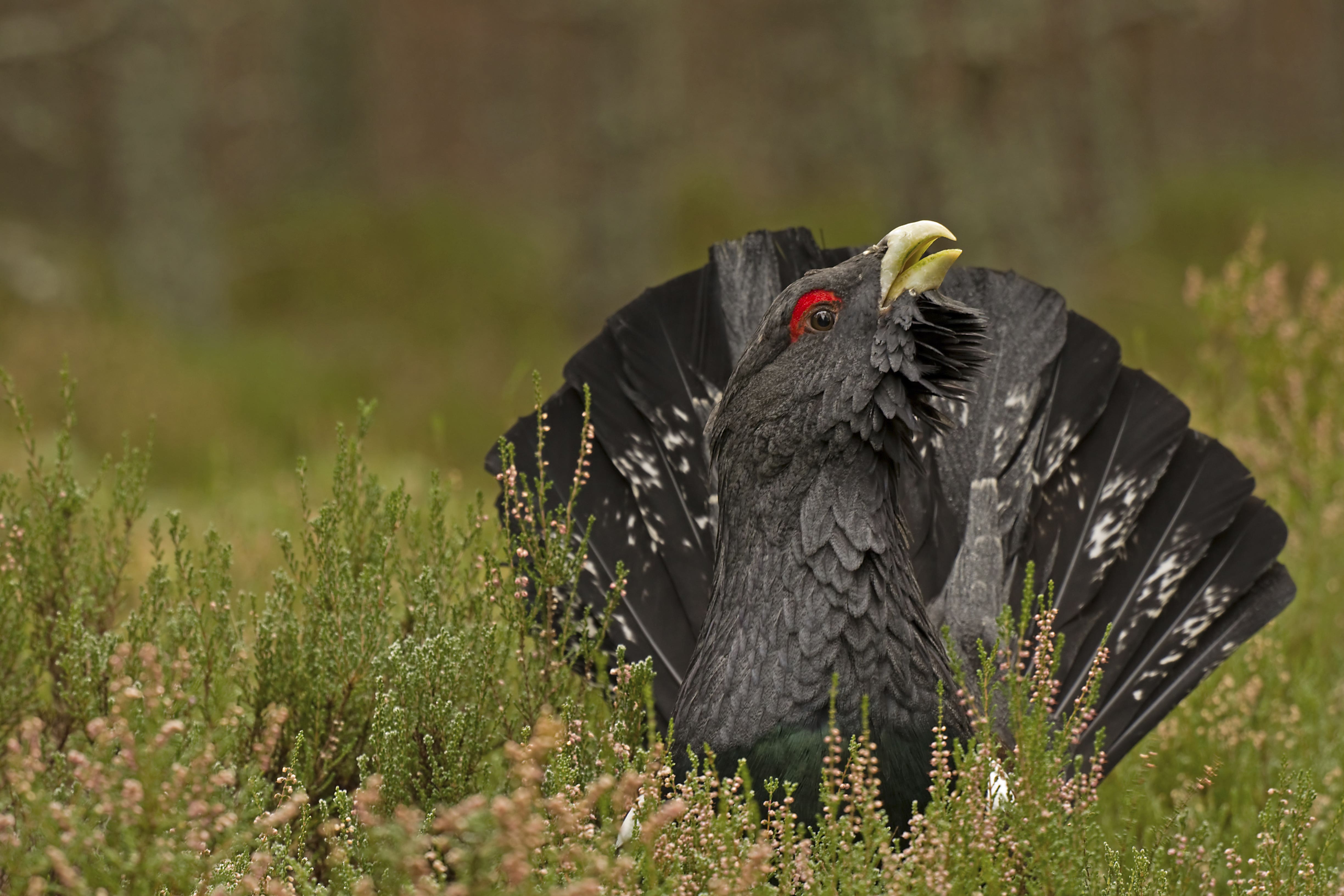Researchers believe nest study offers lifeline to under-threat capercaillie
The study has shown putting meat put down close to nests increases their chances of survival by 83%

Your support helps us to tell the story
From reproductive rights to climate change to Big Tech, The Independent is on the ground when the story is developing. Whether it's investigating the financials of Elon Musk's pro-Trump PAC or producing our latest documentary, 'The A Word', which shines a light on the American women fighting for reproductive rights, we know how important it is to parse out the facts from the messaging.
At such a critical moment in US history, we need reporters on the ground. Your donation allows us to keep sending journalists to speak to both sides of the story.
The Independent is trusted by Americans across the entire political spectrum. And unlike many other quality news outlets, we choose not to lock Americans out of our reporting and analysis with paywalls. We believe quality journalism should be available to everyone, paid for by those who can afford it.
Your support makes all the difference.A study has shown putting down food near bird eggs to draw away predators increases their chances of survival, leading to hopes the tactic can be used to save the capercaillie from potential extinction.
It is believed there are only around 500 of the ground-nesting birds left in the wild in the UK and its decline has been partly blamed on predators such as pine marten, which is itself a protected species, eating their eggs and chicks.
Researchers seeking a non-lethal way to stop predators from targeting capercaillie placed hundreds of artificial nests filled with chicken eggs throughout the Cairngorms then left deer meat near half of them to see if this would discourage them from foraging further.
The study showed putting meat put down close to nests containing eggs increased their chances of survival by 83%, suggesting diversionary feeding could ultimately prove to be a significant contributor to saving the species.
The results have already encouraged organisations such as Forestry and Land Scotland (FLS) and the Royal Society for the Protections of Birds (RSPB) Scotland to deploy the tactic in bird breeding areas to deter predators.
Jack Bamber, a researcher from the University of Aberdeen who led the study, explained: “A major obstacle in effective conservation management is the conflict between recovering predators eating endangered prey. This challenge is becoming commonplace in the era of ecosystem restoration.
“In Scotland the much-celebrated recovery of the pine marten, a nest predator, and the conservation of one of its potential prey, the capercaillie, epitomises this issue.
“Some often advocate for lethal predator control, which isn’t desirable for protected species, so alternative conservation interventions are needed.
“Diversionary feeding, a non-lethal intervention strategy, is a potential solution to this conflict but direct evidence that it leads to significant reductions in nest depredation pressure was lacking.
“Our idea was to fill the bellies of pine martens and other predators, like badgers, in capercaillie strongholds, predicting that once full of free food they would no longer search for eggs.
Capercaillie are struggling in Scotland and we need innovative solutions to be developed and implemented quickly for their populations to recover
“It is the first time this method has been trialled directly to alleviate ground nest predation and the results showed that diversionary feeding, deployed specifically during the breeding season, increased the chance of a nest surviving by 83% compared to the nests without carrion available.
“This suggests that reducing nest predation pressure through diversionary feeding could contribute to more successful capercaillie breeding.
“Importantly, diversionary feeding of pine martens and badgers at key times of the year can achieve positive conservation outcomes without lethal control of protected predators.
“Our study provides a timely solution for a conservation emergency, with implications for any place capercaillie call home.”
The research is the result of a partnership between the University of Aberdeen, the University of St Andrews, FLS, RSPB Scotland, NatureScot and Wildland Ltd, all working under the umbrella of the Cairngorms Connect Predator Project.
Kenny Kortland, wildlife ecologist with FLS and lead of the Cairngorms Connect Predator Project, said: “Predators are an important part of Scotland’s biodiversity but they can have a negative impact on rare species in certain circumstances.
“This exemplary research has provided strong evidence that we can reduce the impacts of predators without resorting to killing them. FLS and other managers are now rolling out this diversionary feeding to help capercaillie.”
Richard Mason, site manager at RSPB Scotland Abernethy, said: “Capercaillie are struggling in Scotland and we need innovative solutions to be developed and implemented quickly for their populations to recover.
“Through dedication and collaboration, this project has been conceived, delivered, tested and rolled out on a landscape scale in less than four years.
“We are delighted that RSPB Scotland Abernethy Forest was included in the trial area. The number of capercaillie here has been increasing in recent years and diversionary feeding has likely contributed to this increase.
“We hope that, alongside habitat restoration and other work, diversionary feeding helps to secure a future for capercaillie in Scotland.”
The project was funded by the Natural Environment Research Council and the School of Biological Science at the University of Aberdeen through the Scottish Universities Partnership for Environmental Research Doctoral Training Partnership and FLS, with support from Wildlands Ltd and RSPB Scotland.
The research is published in the British Ecological Society’s Journal of Applied Ecology.